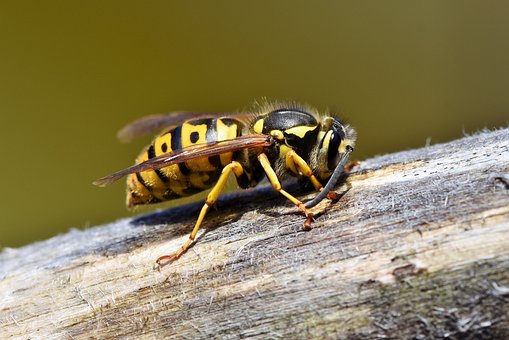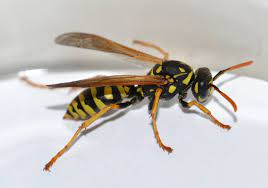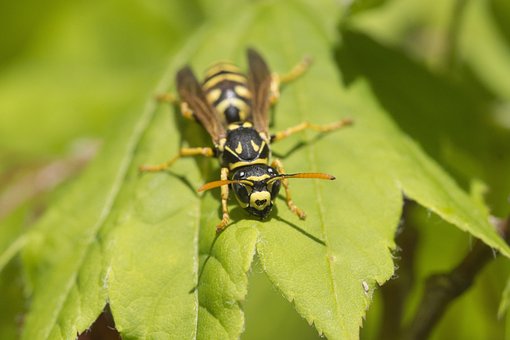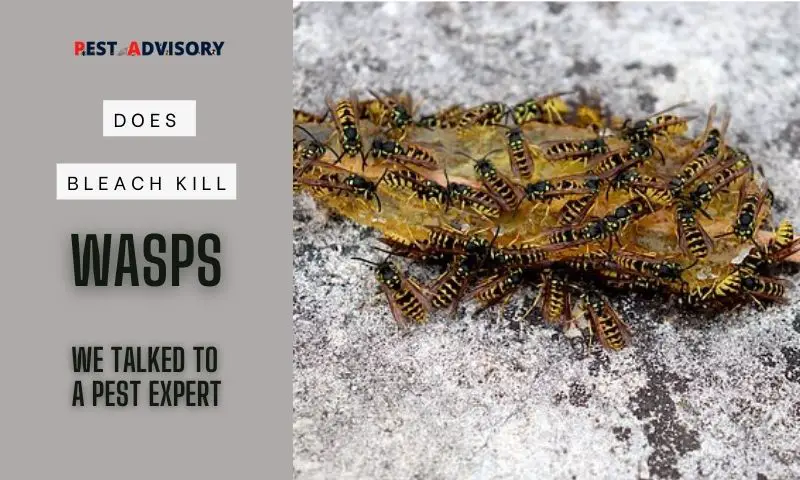Wasps can be a nuisance when they invade our homes, gardens, or outdoor spaces. Their stings are painful and can cause allergic reactions in some people.
When facing a wasp infestation, many homeowners look for effective methods to eliminate these stinging insects. One common household product that often comes to mind is bleach.
But does bleach really kill wasps?
To shed light on this, we talked to Pest Control Expert, Ed Carter, who has a lot of experience in dealing with different kinds of pests.
So, in this article, we will explore the effectiveness of using bleach as a wasp killer, based on Ed Carter’s insights and expertise. So, let’s dive in and find out whether bleach is a viable solution for dealing with wasps or not.
About Our Expert

In 1995, Ed Carter founded Enviro-care Pest & Termite Control in Orange, California. The company offers a diverse set of services, including pest, rodent, and termite control, wood repair, exclusion of pests and rodents, and sanitation services. With a degree in Chemical Engineering from Clarkson University, he has owned and operated several businesses since 1981.
So, with the help of Ed, I guess, we can give you advice that you can trust.
Does Bleach Kill Wasps?
Ed says “As to the bleach, I see recommendations online for “Do it Yourself” methods but I would not recommend using it.”
Bleach is not a reliable or effective method for killing wasps. Bleach is a powerful disinfectant and cleaner, but it is not recommended for use as an insecticide. Wasps are resilient insects with a protective exoskeleton that can withstand the harsh chemicals in bleach.
Bleach may have some initial effects on wasps, such as suffocating or drowning them upon direct contact, it is not a guaranteed or long-term solution.
Wasps are highly adaptable and can quickly recover from exposure to bleach, especially if they are not directly sprayed or submerged in it.
Furthermore, bleach is not formulated to target wasps specifically, and it may not effectively eliminate the entire wasp nest or colony.
How to Use Bleach to Kill Wasps
Prepare the Bleach Solution
Mix two parts water to one part bleach in a high-output spray bottle or a lawn sprayer with a wand.
Protect Yourself
Before attempting to use bleach on wasps, cover up by wearing long pants, sleeves, gloves, a hat, and a mask to minimize the risks of exposure to bleach and wasp stings. Try to keep your skin covered as much as possible.
Keep your Distance
Stand as far away from the wasp nest as your sprayer will allow, preferably at least two feet away to reduce the risk of getting stung.
Apply the Bleach Solution
Thoroughly soak the nest and any visible wasps with the bleach solution. Be cautious and avoid direct contact with the wasps, as they may become aggressive.

Repeat As Necessary
It may take multiple applications of the bleach solution to effectively kill all the wasps, especially if they become agitated and you need to retreat.
Remove the Nest
Once you are certain that the nest is empty, you can knock it down. You can also use more bleach to ensure there are no survivors.
Precautions: A Word Of Advice From Ed Carter
Avoid the Nest During the Day
When dealing with wasps, it’s important to take precautions and ensure your safety. According to Ed “First and foremost, it’s crucial to stay away from the nest during the day when wasps are active and highly defensive of their nest.” He also recommends “Avoid attempts to deal with any wasp nest other than an umbrella wasp.”
Dealing With Umbrella Wasps
For dealing with umbrella wasps, he suggests “Best to deal with it in the evening close to dark when they are least active and most or all of them have returned to the nest. If the nest is high in the eaves of the house – hire a professional. If you are determined to do it yourself, wear a long sleeve shirt, pants, and a hat.”
Use a Specialized Wasp Control Product
As for the type of product to use, Ed says “I would recommend using a product like Spectracide Wasp and Hornet Killer. There are other products that are even more effective but should only be used by licensed professionals.”

Frequently Asked Questions
Will Bleach Kill Yellow Jackets?
Bleach can be effective in killing yellow jackets, as it is a strong disinfectant that can suffocate and destroy insects. However, mixing bleach with water can create toxic gas which is harmful to humans. It’s best to use safer and more targeted insecticides specifically designed for yellow jacket control.
Can Hydrogen Peroxide Kill Wasps?
Hydrogen peroxide can be used to kill wasps as it is a strong oxidizer that can damage the cellular structure of insects. However, using hydrogen peroxide to kill wasps may not be the most practical or recommended method. It can be dangerous to handle and can cause irritation to the eyes, nose, skin, and throat.
Can you Use Clorox for Killing Wasps & Yellow Jackets?
Clorox, which is a brand of bleach, can potentially be used to kill wasps and yellow jackets. Bleach is a strong disinfectant that can suffocate and destroy insects. To kill yellow jackets with Clorox it’s necessary that they come in direct contact. Clorox won’t kill wasps instantly it will take some time to work on.
What To Do if there is a Big Wasp Nest On My Property?
According to Ed Carter, “It’s important to prioritize safety and consider professional help when dealing with big wasp nests, especially if they are difficult to reach or if you have concerns about handling hazardous products.”
If you are in Orange, California, you can contact Enviro-Care Pest & Termite Contro, Inc to get professional help to get rid of waps.

Conclusion
Based on the insights of a Pest Expert with years of real experience, bleach is not a recommended method for killing wasps. Wasps are resilient insects, and bleach is not formulated to effectively control or eliminate them.
It’s important to prioritize safety, consider the location of the nest, and be aware of potential risks and limitations.
When in doubt, consulting with a pest control expert or hiring a professional service can ensure effective wasp control and minimize risks associated with DIY methods.
